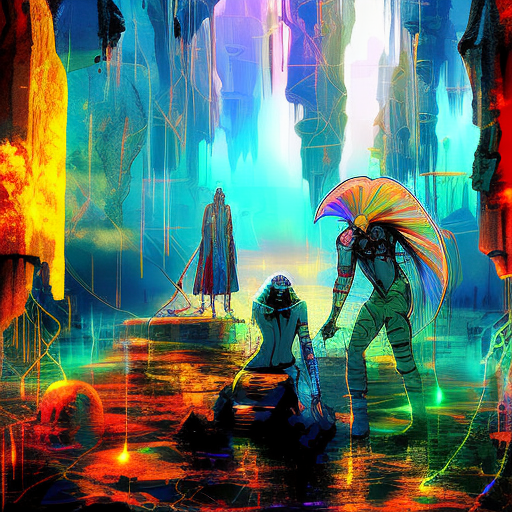One-line summary: In “Xenocide,” the third installment of Orson Scott Card’s Ender’s Game series, Ender Wiggin faces the moral dilemma of saving the alien species he once destroyed, while navigating complex political and religious conflicts on the planet Lusitania.
The Battle for Lusitania
After the events of “Speaker for the Dead,” Ender Wiggin finds himself on the planet Lusitania, home to the Pequeninos, a sentient alien species, and the Hive Queen, who is the last surviving member of the Formic race. Ender’s mission is to prevent the destruction of the Pequeninos, who are being threatened by the Starways Congress due to their potential threat to humanity. However, the situation becomes more complicated when a deadly virus, known as the Descolada, is discovered on the planet.
As Ender tries to find a solution to save both the Pequeninos and the humans on Lusitania, he faces opposition from various factions, including the Starways Congress, the Catholic Church, and the local population. The Congress fears the Descolada’s potential to spread beyond Lusitania, while the Catholic Church sees the Pequeninos as soulless creatures that cannot be saved. Ender must navigate these conflicts while also dealing with his own guilt for the destruction he caused as a child.
The Complexity of Morality
“Xenocide” delves deep into the complexity of morality, exploring the consequences of one’s actions and the ethical dilemmas that arise when faced with conflicting loyalties. Ender, burdened by guilt, seeks redemption by saving the Pequeninos, but his actions are met with resistance from those who see the aliens as a threat. The novel raises thought-provoking questions about the value of life, the nature of forgiveness, and the limits of empathy.
The characters in “Xenocide” are forced to confront their own biases and preconceptions, challenging their beliefs and forcing them to reevaluate their understanding of what it means to be human. The novel also explores the concept of cultural relativism, as the humans on Lusitania struggle to understand and accept the customs and beliefs of the Pequeninos, who have a vastly different way of life.
The Power of Love and Understanding
Amidst the political and religious conflicts, “Xenocide” also emphasizes the power of love and understanding in overcoming differences. Ender’s sister, Valentine, plays a crucial role in bridging the gap between the humans and the Pequeninos, using her empathy and compassion to forge connections and foster understanding. Through her efforts, she demonstrates that empathy and love can transcend cultural barriers and lead to reconciliation.
In addition to Valentine, other characters, such as Novinha and her family, also exemplify the importance of empathy and understanding. They strive to find a peaceful solution to the conflicts on Lusitania, even in the face of great adversity. Their actions highlight the transformative power of compassion and the potential for growth and change.
- The novel explores the complexity of morality and the ethical dilemmas that arise when faced with conflicting loyalties.
- “Xenocide” raises thought-provoking questions about the value of life, the nature of forgiveness, and the limits of empathy.
- The power of love and understanding is emphasized as characters strive to bridge cultural barriers and find peaceful solutions.
“The essence of being human is that one does not seek perfection, that one is sometimes willing to commit sins for the sake of loyalty, that one does not push asceticism to the point where it makes friendly intercourse impossible, and that one is prepared in the end to be defeated and broken up by life, which is the inevitable price of fastening one’s love upon other human individuals.”
– Orson Scott Card, Xenocide
In “Xenocide,” Orson Scott Card continues to explore complex themes of morality, love, and understanding. The novel challenges readers to question their own beliefs and biases, while reminding us of the power of empathy and compassion in overcoming differences. Ultimately, “Xenocide” serves as a reminder that our actions have consequences and that true redemption lies in our ability to learn from our mistakes and strive for a better future.












